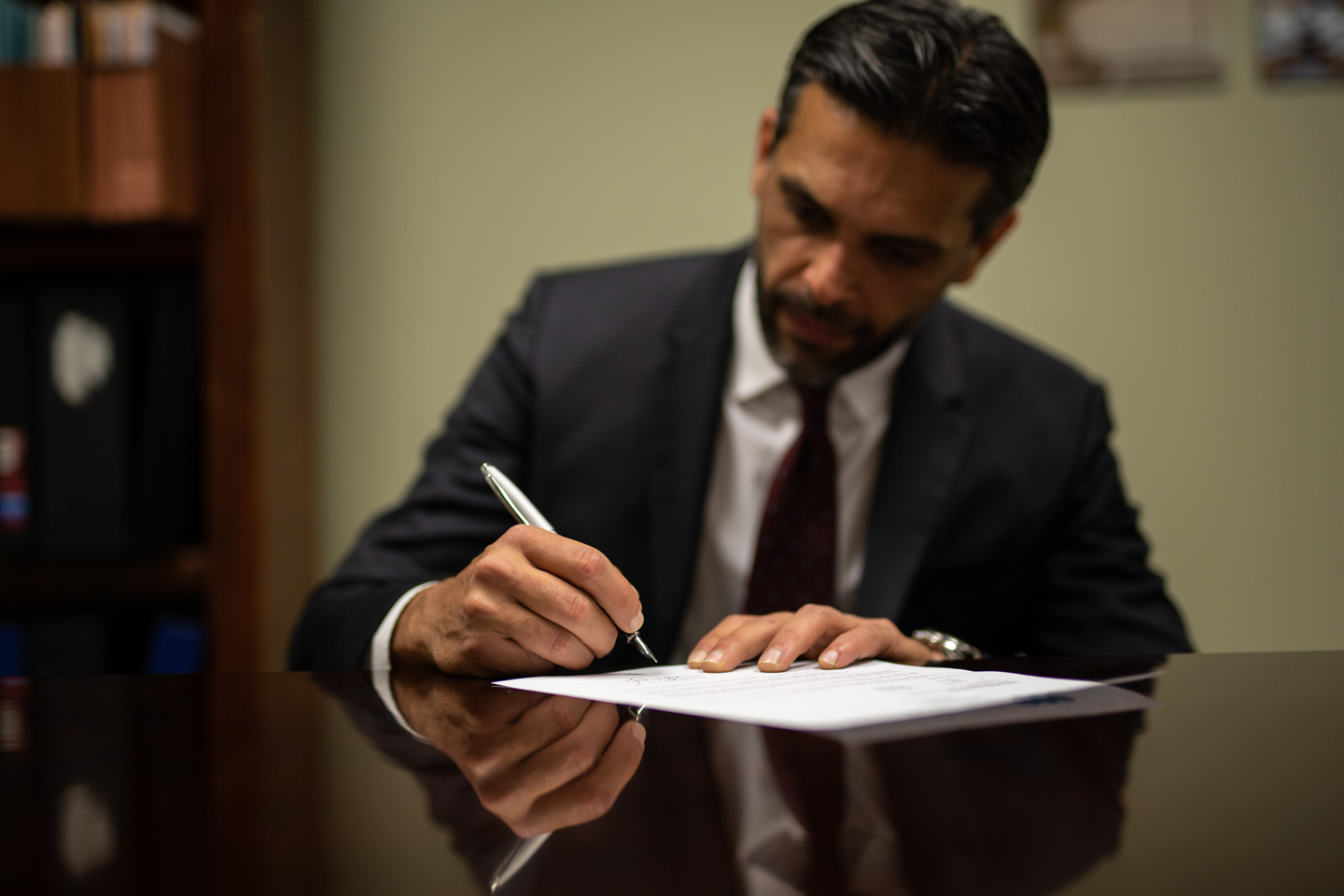How Weather Conditions Affect Car Accident Liability in Texas

In places like San Antonio, Texas weather can flip fast—one hour it's dry, the next, a wall of rain hits the highway. Fog, wind, hail, and even rare ice storms can make driving more dangerous across the state. But here's what many people don't realize: bad weather doesn't remove a driver's legal responsibility after a car accident, it raises the stakes.
Liability Doesn't Go Away When the Weather Gets Bad
Texas law makes it clear: drivers must adjust their behavior based on road and weather conditions. That means slowing down in heavy rain, increasing the distance between vehicles, and using headlights properly in low visibility. If someone fails to adapt and causes a crash, they can be found at fault, even if the weather played a role.
The state's transportation code § 545.351 outlines this duty of care. Speed limits are the maximum under ideal conditions. When visibility is poor or roads are slick, driving at the posted speed can still be considered reckless. If a driver loses control on a wet road because they were going too fast or following too closely, that's not just bad luck; that's negligence.
According to the Texas Department of Transportation, in 2023, more than 42,000 crashes in Texas happened during rain. Fog, while less common, was involved in nearly 2,000 crashes. In high-traffic cities like San Antonio and Houston, rain-related collisions are especially common during spring and early summer storms.
These numbers show that weather is a serious factor, but they also highlight something important: tens of thousands of drivers managed to stay safe in the same conditions. That's why investigators and insurance adjusters focus on how each driver responded. Did they take reasonable precautions? Or did they ignore the risks?
How Courts and Insurance Companies Assign Fault
In Texas, car accident claims follow a modified comparative negligence rule. That means fault can be shared between parties. When weather is involved, insurers and courts take a close look at the details. Did the driver slow down appropriately for rain or fog? Did they use low beams in misty conditions instead of high beams that can blind others? Were they using cruise control on an icy bridge? These questions matter.
For example, imagine two drivers approaching a sudden downpour. One eases off the gas, turns on their lights, and keeps a safe distance. The other keeps cruising at 75, hydroplanes, and slams into the car ahead. The rain may have been the trigger, but it's the second driver's choices that likely make them liable.
Why Evidence Matters in Weather-Related Crashes
In cases where weather conditions complicate the story, evidence becomes critical. Police reports will often include notes about rain, fog, or slick roads. Photos or videos from the scene can show puddles, tire tracks, or fog density. Dashcams and vehicle telematics may show whether a driver braked or maintained speed too long. And weather reports from that day can back up claims that the conditions were foreseeable.
All of this information helps answer the central question: Did the driver behave like a reasonable person under the circumstances?
In some situations, insurance companies try to argue that the crash was unavoidable, which they call an "act of God." But in most cases, it's not about the weather; it's about how the driver reacted to it. Choosing not to slow down or failing to adjust is almost always a factor.
What To Do If You're in a Weather-Related Accident
If you've ever driven through dense morning fog outside San Antonio or hit black ice on a North Texas overpass, you know how quickly road conditions can turn dangerous. After a car crash, emotions run high, and the weather can make things even more confusing. But what you do in the minutes and hours after the accident can protect your rights and strengthen your case.
First, make sure everyone is safe. If possible, move your vehicle out of traffic. Call 911 to report the accident and any injuries. When the police arrive, tell them clearly what happened, but avoid guessing or accepting blame. Just explain the facts.
If it's safe, take photos or videos to capture the road conditions, any standing water or fog, and the positions of the vehicles. If there are skid marks or damaged guardrails, get those too. This visual evidence can support your version of events, especially when the weather is involved.
Exchange information with the other driver, including insurance and license plate details. Try to get contact information for any witnesses who saw what happened. Once you leave the scene, write down everything you remember while it's fresh, how the weather changed, whether the other driver was speeding or swerving, and anything else that stands out.
It's also a good idea to get checked out by a medical professional, even if you feel okay at first. Some injuries, like whiplash or concussions, don't show symptoms right away. Medical records are essential not just for your health, but for your personal injury claim.
Finally, consider talking to a personal injury attorney. These cases can get complicated quickly, especially when the weather is a factor. A personal injury attorney at Ali Law Group can help you understand your options and avoid common mistakes, like accepting a lowball offer or saying the wrong thing to an insurance adjuster.
Driving Smart Always Matters
The weather can change everything on the road, but it doesn't change the rules of responsibility. In Texas, drivers are expected to adjust their behavior to match the conditions around them. That means slowing down, staying alert, and putting safety first.
When someone fails to do that, and another person gets hurt, the law provides a path to accountability. Whether the roads are soaked in rain or blanketed in fog, every driver must act with care. And if they don't, they can — and often should —be held responsible.
Whether your accident happened in San Antonio or anywhere else in Texas, understanding your rights under state law is critical. If you've been in a weather-related car accident and want to better understand your legal options, the team at Ali Law Group is available to talk. A consultation with our San Antonio personal injury lawyer can help you make informed decisions based on your situation.
Disclaimer: The information provided on this blog is for informational purposes only and does not constitute legal advice. Every situation is unique, and the law can be complex. For specific legal guidance on your personal injury case in Texas, contacting an experienced attorney is essential. The Ali Law Group is not responsible for any actions taken based on the information contained here.















